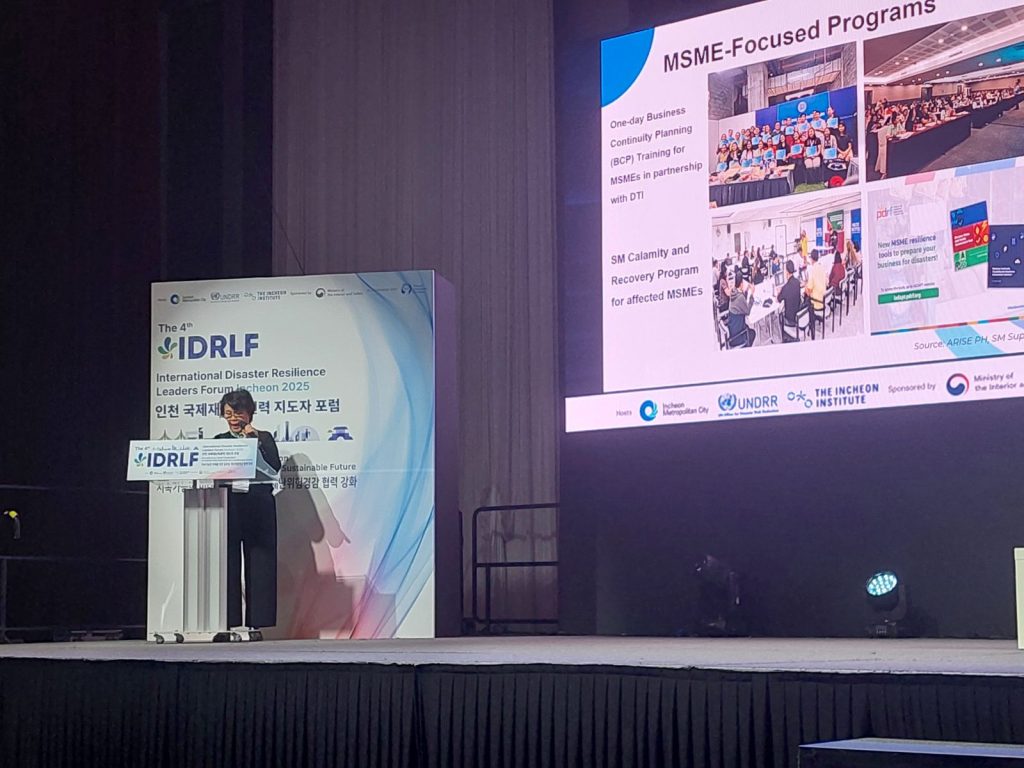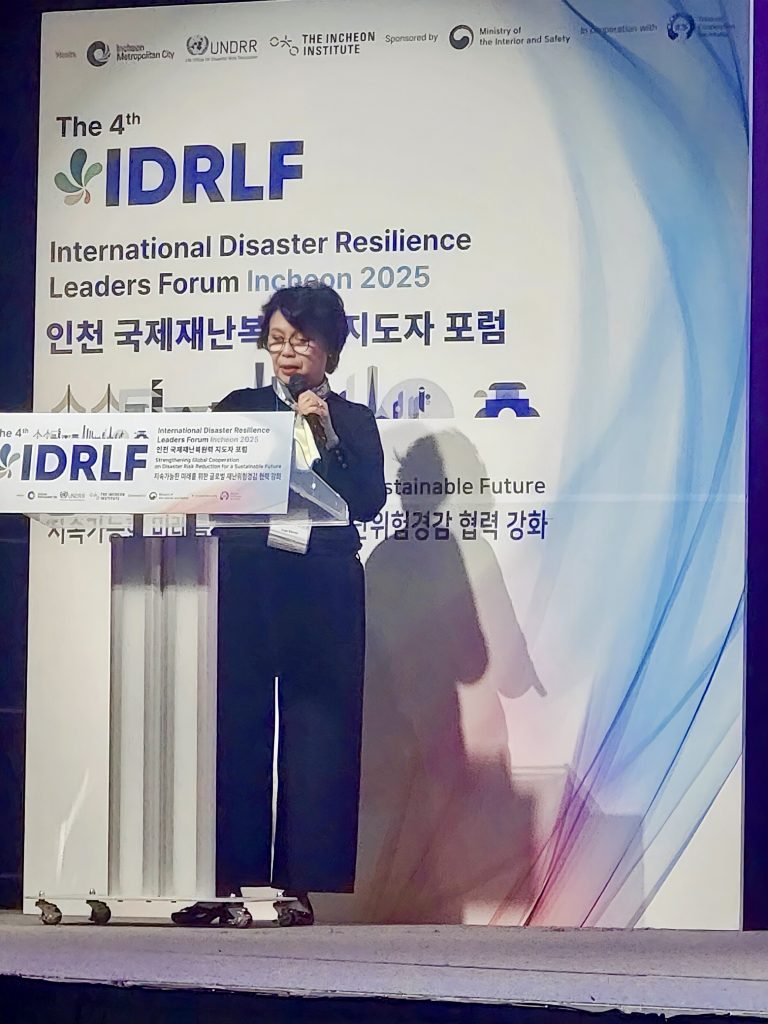Incheon, South Korea — September 30, 2025 — ARISE Philippines, represented by Co-Chairperson Liza Silerio, showcased the vital role of community-based collaborative networks in advancing disaster risk reduction (DRR) and urban resilience during the International Disaster Resilience Leaders Forum (IDRLF) 2025 held at the Convention Center in Incheon, Republic of Korea.
The Forum, hosted by the Incheon Metropolitan City and the United Nations Office for Disaster Risk Reduction (UNDRR), brought together global leaders, government officials, technical experts, and civil society to strengthen global cooperation on disaster risk reduction for a sustainable future. Under the theme “Strengthening Global Cooperation on Disaster Risk Reduction for a Sustainable Future,” this year’s event emphasized international collaboration and the importance of local-global partnerships in accelerating the implementation of the Sendai Framework for Disaster Risk Reduction 2015-2030.

Photo 1: ARISE PH representing the Philippines during the panel Session 5: Utilizing Community-based Collaborative Network for DRR
The Philippine contingent featured a strong collaboration between Pasig City, representing Local Government Units (LGUs), and ARISE Philippines, representing the private sector. Pasig City shared its pioneering initiatives on urban flood management and community-based disaster preparedness, demonstrating how governance, community engagement, and technology integration build urban resilience. This partnership between Pasig City and ARISE Philippines reflected the Philippines’ whole-of-society approach to DRR, showcasing a unified front of government innovation and private sector support working together to enhance community safety and sustainability.

Photo 2: Philippine contingent showcasing strong collaboration between Pasig City, representing LGUs, and ARISE Philippines with their network member, the National Resilience Council, representing the private sector.
During Session 5 titled “Utilizing Community-based Collaborative Networks for DRR,” ARISE Philippines presented how multi-sectoral efforts within the country—anchored by the National Disaster Risk Reduction and Management Council (NDRRMC)—pave the way for a whole-of-society approach to enhance resilience. The Philippines integrates government-led initiatives with private sector empowerment programs, youth engagement, grassroots volunteer networks, and innovations in science and technology.
The presentation highlighted ARISE Philippines members and key private sector-driven programs, including MSME continuity plans by SM Supermalls, barangay-based simulation exercises through Philippine Disaster Resilience Foundation (PDRF) projects, and youth resilience leadership training. Vulnerable urban communities also benefit from innovative interventions led by organizations like Upskills Foundation and Catholic Relief Services, complemented by real-time weather monitoring technologies. Scientific research and innovation by institutions like the Manila Observatory and the Oscar M. Lopez Center underpin these community efforts.


Photo 3: Engr. Liza Silerio, Co-Chairperson of ARISE Philippines, shares the network members’ innovative programs on community-based collaboration on DRR.
During the Q&A session, the panel focused on ARISE Philippines’ Youth for Resilience program, which encourages future leaders to join the disaster risk reduction community through the government’s Accredited Community Disaster Volunteer (ACDV) program.
The session underscored that success in DRR comes from inclusive community ownership, multi-sector collaboration, accessible funding, climate adaptation integration, and strong governance. ARISE Philippines reaffirmed the private sector’s commitment to partnering with government and civil society to build safer and more resilient communities across the Philippines.
As the global community navigates the final five-year push to meet Sendai Framework targets by 2030, ARISE Philippines continues to champion partnerships and innovative solutions that transform disaster risk reduction from policy to practice.
